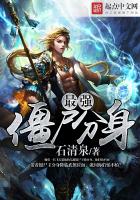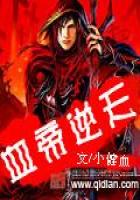On the river, where was a packed trail and where snowshoes were unnecessary, the dogs averaged six miles an hour. To keep up with them, the two men were compelled to run. Daylight and Kama relieved each other regularly at the gee-pole, for here was the hard work of steering the flying sled and of keeping in advance of it. The man relieved dropped behind the sled, occasionally leaping upon it and resting.
It was severe work, but of the sort that was exhilarating.
They were flying, getting over the ground, ****** the most of the packed trail. Later on they would come to the unbroken trail, where three miles an hour would constitute good going. Then there would be no riding and resting, and no running. Then the gee-pole would be the easier task, and a man would come back to it to rest after having completed his spell to the fore, breaking trail with the snowshoes for the dogs. Such work was far from exhilarating also, they must expect places where for miles at a time they must toil over chaotic ice-jams, where they would be fortunate if they made two miles an hour. And there would be the inevitable bad jams, short ones, it was true, but so bad that a mile an hour would require terrific effort. Kama and Daylight did not talk. In the nature of the work they could not, nor in their own natures were they given to talking while they worked. At rare intervals, when necessary, they addressed each other in monosyllables, Kama, for the most part, contenting himself with grunts.
Occasionally a dog whined or snarled, but in the main the team kept silent.
Only could be heard the sharp, jarring grate of the steel runners over the hard surface and the creak of the straining sled.
As if through a wall, Daylight had passed from the hum and roar of the Tivoli into another world--a world of silence and immobility. Nothing stirred.
The Yukon slept under a coat of ice three feet thick. No breath of wind blew. Nor did the sap move in the hearts of the spruce trees that forested the river banks on either hand. The trees, burdened with the last infinitesimal pennyweight of snow their branches could hold, stood in absolute petrifaction.
The slightest tremor would have dislodged the snow, and no snow was dislodged.
The sled was the one point of life and motion in the midst of the solemn quietude, and the harsh churn of its runners but emphasized the silence through which it moved.
It was a dead world, and furthermore, a gray world. The weather was sharp and clear; there was no moisture in the atmosphere, no fog nor haze;yet the sky was a gray pall. The reason for this was that, though there was no cloud in the sky to dim the brightness of day, there was no sun to give brightness. Far to the south the sun climbed steadily to meridian, but between it and the frozen Yukon intervened the bulge of the earth.
The Yukon lay in a night shadow, and the day itself was in reality a long twilight-light. At a quarter before twelve, where a wide bend of the river gave a long vista south, the sun showed its upper rim above the sky-line.
But it did not rise perpendicularly. Instead, it rose on a slant, so that by high noon it had barely lifted its lower rim clear of the horizon. It was a dim, wan sun. There was no heat to its rays, and a man could gaze squarely into the full orb of it without hurt to his eyes. No sooner had it reached meridian than it began its slant back beneath the horizon, and at quarter past twelve the earth threw its shadow again over the land.
The men and dogs raced on. Daylight and Kama were both savages so far as their stomachs were concerned. They could eat irregularly in time and quantity, gorging hugely on occasion, and on occasion going long stretches without eating at all. As for the dogs, they ate but once a day, and then rarely did they receive more than a pound each of dried fish. They were ravenously hungry and at the same time splendidly in condition. Like the wolves, their forebears, their nutritive processes were rigidly economical and perfect. There was no waste. The last least particle of what they consumed was transformed into energy.
And Kama and Daylight were like them. Descended themselves from the generations that had endured, they, too, endured. Theirs was the ******, elemental economy. A little food equipped them with prodigious energy.
Nothing was lost. A man of soft civilization, sitting at a desk, would have grown lean and woe-begone on the fare that kept Kama and Daylight at the top-notch of physical efficiency. They knew, as the man at the desk never knows, what it is to be normally hungry all the time, so that they could eat any time. Their appetites were always with them and on edge, so that they bit voraciously into whatever offered and with an entire innocence of indigestion.
By three in the afternoon the long twilight faded into night. The stars came out, very near and sharp and bright, and by their light dogs and men still kept the trail. They were indefatigable. And this was no record run of a single day, but the first day of sixty such days. Though Daylight had passed a night without sleep, a night of dancing and carouse, it seemed to have left no effect. For this there were two explanations first, his remarkable vitality; and next, the fact that such nights were rare in his experience. Again enters the man at the desk, whose physical efficiency would be more hurt by a cup of coffee at bedtime than could Daylight's by a whole night long of strong drink and excitement.
Daylight travelled without a watch, feeling the passage of time and largely estimating it by subconscious processes. By what he considered must be six o'clock, he began looking for a camping-place. The trail, at a bend, plunged out across the river. Not having found a likely spot, they held on for the opposite bank a mile away. But midway they encountered an ice-jam which took an hour of heavy work to cross. At last Daylight glimpsed what he was looking for, a dead tree close by the bank. The sled was run in and up. Kama grunted with satisfaction, and the work of ****** camp was begun.















